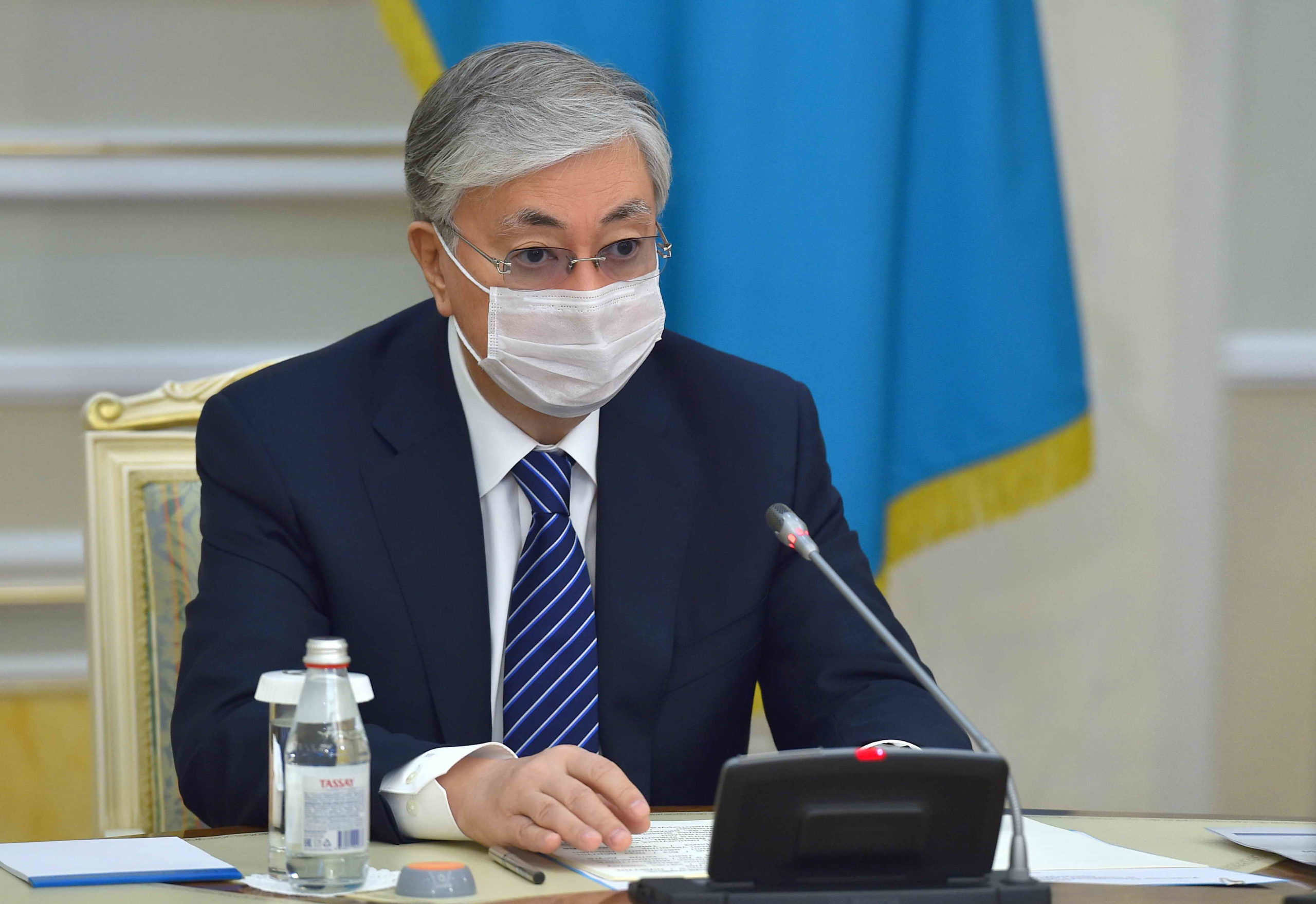NUR-SULTAN – As coronavirus cases rise globally, Kazakhstan has to come up with a plan to curb the spread of coronavirus infection, but without repeating the national lockdown imposed during the first wave in March. This is what Kazakh President Kassym-Jomart Tokayev told the government officials at the Nov. 17 meeting that focused on the country’s fight against the virus, reported the Akorda press service.

Kassym-Jomart Tokayev during the meeting. Photo credit: Akorda press service
“The second wave of the pandemic will be different in many ways and will unfold in difficult times for the country’s economy. We must take this into account. Today, the whole world has to solve a ‘COVID-19 equation,’ which involves not only the direct losses of certain industries but also a delayed effect, when unemployment or education gaps can lead to various negative consequences, including increased crime rates,” said Tokayev.
He stressed the importance of systemic measures, where accuracy in recording COVID-19 cases is key in the fight against the virus.
“In several regions, there were attempts to hide new cases of coronavirus infection. We are talking about East Kazakhstan, North Kazakhstan, Pavlodar, Akmola, Kostanay and other regions. It must be understood that wishful thinking is a very dangerous phenomenon because it distorts the picture of a very real threat and also undermines the national strategy to fight coronavirus infection throughout the country,” he said.
The current situation, he noted, is underestimated, while the measures taken are halfway measures.
The population is not sufficiently worried about the virus, many do not observe the crucial protective measures, such as wearing masks and staying at home. “This is already an axiom that affects many countries around the world, where this trend is also observed. We must admit that this problem has become chronic in our healthcare system as well,” he added.
To control a new spike in COVID-19 infections, Tokayev instructed the Kazakh Ministry of Healthcare and the National Statistics Bureau to develop comprehensive approaches to the formation, evaluation and analysis of medical statistics.
All healthcare organizations must be ready, including military medical facilities.
“A recent assessment of the medical organisations shows that they are not sufficiently prepared. Violations have been revealed in more than half of the health facilities. Hospitals are not fully divided into zones, and therefore the risk of infection among patients and staff remains. In almost all regions, there is a shortage of intensive care units, in particular, a shortage of particular medicines and a number of medical devices to treat severe coronavirus patients,” he said.
In line with Tokayev’s recent instructions to make PCR testing more affordable for the population, the price was reduced to 9,000 tenge (US$21), lowering it from the previous price which ranged between 11,000 tenge (US$26) to 18,000 tenge (US$42).
Similar to PCR testing, he instructed his government to lower prices for medicines, primarily COVID-19 medications. The government was also tasked with providing healthcare workers with the necessary amount of protective equipment.
Tokayev cautioned that all measures must be transparent.
“The government needs to monitor all potentially corrupt areas. We saw corruption during the first wave, which included overpricing of medical masks and medicines, violations at checkpoints and corruption in distributing supplemental payments to doctors (on the frontlines). The work of inspection authorities, such as the police, akimats (city administration) and monitoring groups requires special attention. During the pandemic, they were given broad and extraordinary powers to inspect businesses and citizens. And this is justified. These powers must be used correctly and must not be abused,” he said.
